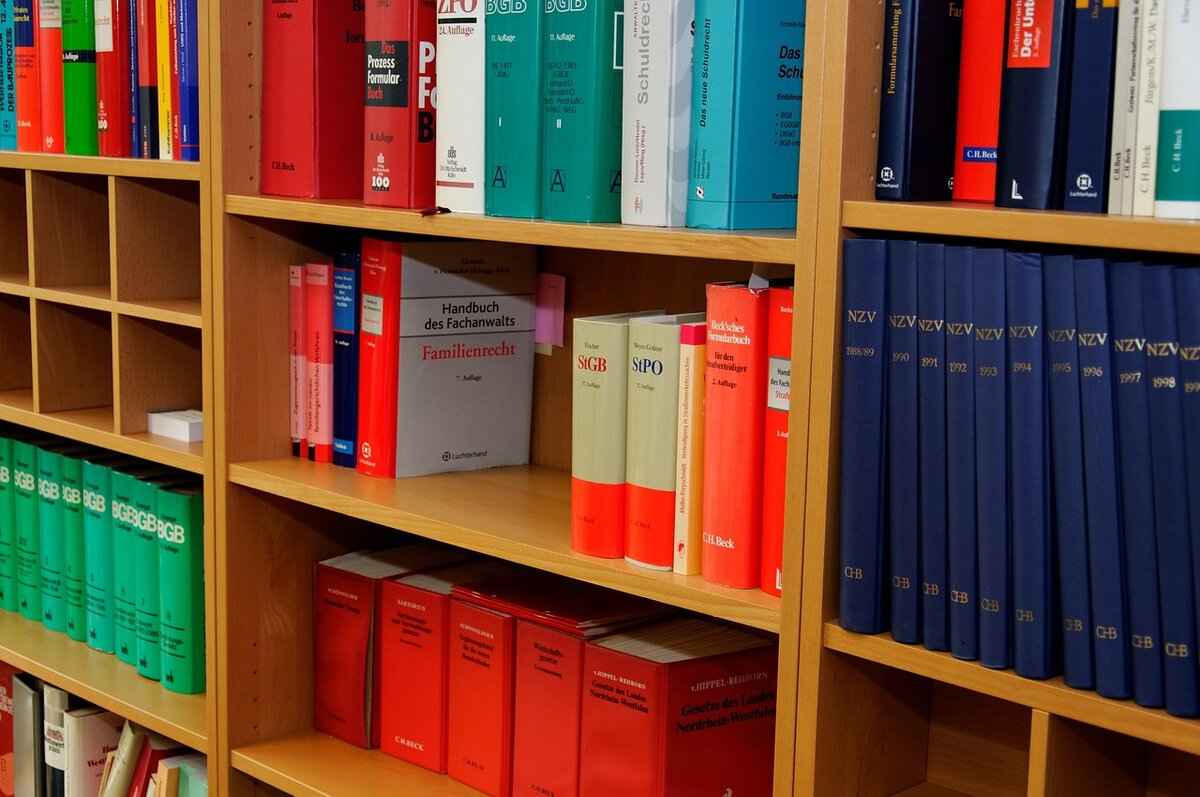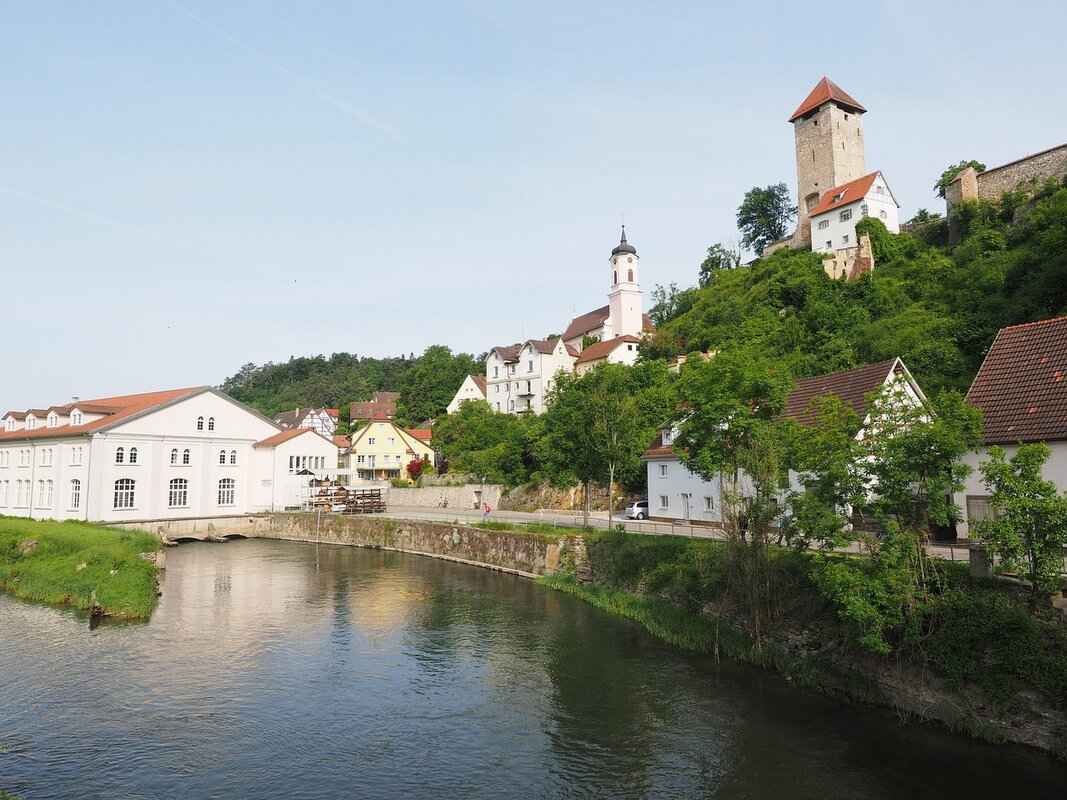This article explores the implications of the statute of limitations, detailing how it affects legal claims, potential exceptions, and the nuances involved in pursuing time-barred rights. Understanding the statute is crucial for anyone considering legal action, as it establishes the timeframe within which a claim must be filed.
Understanding the Statute of Limitations
The statute of limitations is a critical legal principle that sets the maximum time period after an event during which legal proceedings can be initiated. Its primary purpose is to ensure fairness and justice by preventing the indefinite threat of litigation, allowing both parties to have a clear timeline for resolving disputes. The statute varies significantly across different jurisdictions and types of claims.
Types of Statutes of Limitations
- Civil Statutes of Limitations: Typically range from two to six years, depending on the nature of the claim.
- Criminal Statutes of Limitations: Vary based on the severity of the crime, with felonies often having longer time frames than misdemeanors.
- Administrative Claims: Often have their own specific limitations, particularly in regulatory contexts.
Civil Statutes of Limitations
Civil claims encompass a variety of legal disputes, including personal injury cases and contract disputes. Each type of claim has its own statute of limitations:
- Personal Injury Claims: Generally, these claims must be filed within two to three years from the date of the injury, although this can vary by state.
- Contractual Claims: Usually have a limitation period of three to six years, influenced by the terms of the contract and the nature of the breach.
Criminal Statutes of Limitations
In the realm of criminal law, the statute of limitations differs based on the crime’s severity. For instance, serious felonies like murder may not have a statute of limitations, while less severe offenses, such as misdemeanors, typically have shorter time frames, often ranging from one to three years.
Exceptions to the Statute of Limitations
There are specific circumstances under which the statute of limitations may be tolled or extended. Common exceptions include:
- Fraud: If a victim was unaware of the fraud, the statute may not begin until the fraud is discovered.
- Minors: Generally, the statute does not start until a minor reaches adulthood.
- Mental Incapacity: If a claimant is mentally incapacitated, the statute may be paused.
Tolling of the Statute
Tolling refers to the legal suspension of the statute of limitations. Various scenarios can lead to tolling, such as the claimant being out of the jurisdiction or unable to pursue the claim due to legal disability.
Discovery Rule
The discovery rule allows the statute of limitations to commence when the injured party becomes aware of the harm. This is particularly relevant in cases of medical malpractice or latent injuries, where the damage may not be immediately apparent.
Consequences of Filing After the Deadline
Filing a claim after the statute of limitations has expired can result in automatic dismissal. This underscores the importance of timely action in legal matters. Claimants should be aware that even if they have a valid claim, missing the deadline can jeopardize their chances of a successful outcome.
Strategies for Pursuing Time-Barred Claims
While pursuing claims that may be time-barred can be challenging, there are strategies to consider. Legal arguments may be made for tolling or exceptions, and some cases may warrant a thorough examination of the circumstances surrounding the delay.
Consulting with an Attorney
Given the complexities involved in statutes of limitations, seeking legal advice is essential. An experienced attorney can provide guidance tailored to individual circumstances, helping claimants navigate the intricacies of the law effectively.
Conclusion
Understanding the statute of limitations is vital for protecting your legal rights. This article provides a comprehensive overview of its implications and potential exceptions for pursuing claims.

Understanding the Statute of Limitations
The statute of limitations is a vital legal principle that establishes a time frame within which individuals must initiate legal proceedings following a specific event or incident. Understanding this concept is crucial for anyone considering legal action, as it directly impacts the ability to claim rights and seek justice. This section will explore the purpose and significance of the statute of limitations in legal contexts.
At its core, the statute of limitations serves several important functions:
- Promotes Legal Certainty: By imposing a deadline for filing claims, the statute of limitations helps to ensure that legal disputes are resolved in a timely manner. This promotes stability and predictability in the legal system.
- Encourages Diligence: The time limit encourages individuals to act promptly when they believe they have a legal claim. This diligence helps to ensure that evidence remains fresh and witnesses are available to testify.
- Prevents Stale Claims: As time passes, the ability to gather evidence diminishes. The statute of limitations helps to prevent claims that may be difficult to prove due to the fading memories of witnesses or the unavailability of crucial evidence.
Different types of claims are governed by varying statutes of limitations, which can differ significantly based on jurisdiction and the nature of the claim. For instance, civil claims such as personal injury or breach of contract typically have their own specific time frames. In contrast, criminal claims may have longer or shorter statutes of limitations depending on the severity of the crime.
Understanding these distinctions is essential for anyone considering legal action. For example, personal injury claims often have a statute of limitations ranging from two to three years, while contractual claims may extend from three to six years. Certain factors, such as the date of the incident or the nature of the contract, can influence these time frames.
Moreover, there are exceptions to the statute of limitations that can toll or extend the deadline. Common exceptions include cases involving fraud, where the injured party may not immediately discover the wrongdoing, or situations involving minors or individuals with mental incapacity, who may be afforded additional time to file their claims.
One critical aspect of the statute of limitations is the discovery rule. This legal principle allows the statute of limitations to begin only when the injured party becomes aware of the harm suffered. This can significantly affect the timeline for filing a claim, as it recognizes that some injuries may not be immediately apparent.
Failing to file a claim within the statute of limitations can lead to serious consequences, including automatic dismissal of the case. This highlights the importance of understanding and adhering to these legal time frames, as missing the deadline can result in the loss of the right to seek justice.
In conclusion, the statute of limitations is a fundamental aspect of the legal system that serves to promote timely resolution of disputes. By understanding its purpose, types, exceptions, and implications, individuals can better navigate their legal rights and obligations. Consulting with an attorney experienced in this area can provide valuable insights and guidance, ensuring that individuals are well-informed and prepared to take appropriate legal action.

Types of Statutes of Limitations
Different types of claims have varying statutes of limitations. Understanding these distinctions is crucial for anyone considering legal action. In this section, we will examine the differences between civil, criminal, and administrative claims, along with their respective time limits.
The statute of limitations serves as a critical legal timeframe within which a claim must be filed. If the deadline passes, the right to seek legal remedy may be lost forever. Thus, it is essential to be aware of the specific limitations that apply to various types of claims.
- Civil Claims: These include personal injury, property damage, and contract disputes. Generally, civil statutes of limitations range from two to six years, depending on the nature of the claim and the jurisdiction. For example, personal injury cases often have a two- to three-year limit, while written contracts might extend to six years.
- Criminal Claims: The limitations for criminal cases can vary significantly based on the severity of the crime. Misdemeanors typically have shorter statutes, often around one to three years, whereas felonies can have limits ranging from three years to no limit at all for severe offenses like murder. Understanding these distinctions is vital for both defendants and victims seeking justice.
- Administrative Claims: These claims often arise in the context of disputes with government agencies. Administrative statutes of limitations can vary widely, depending on the specific agency and the type of claim. For instance, a claim against a federal agency may have a much shorter timeframe than a state-level claim.
Factors Influencing Time Limits: Several factors can affect the duration of the statute of limitations for a claim. For civil claims, the discovery rule can extend the time limit, allowing the injured party to file a claim after discovering the injury. In criminal cases, certain circumstances, such as the defendant fleeing the jurisdiction, can toll the statute, effectively pausing the countdown.
Additionally, the nature of the claim itself can influence the applicable statute. For example, claims involving fraud may have longer time limits due to the concealed nature of the wrongdoing. In contrast, administrative claims often come with strict deadlines that require prompt action.
It is essential to consult with a qualified attorney to navigate the complexities of statutes of limitations effectively. An experienced legal professional can provide insights into the specific time limits applicable to your case and advise on any potential exceptions that may apply.
In conclusion, understanding the various statutes of limitations is crucial for anyone considering legal action. Whether dealing with civil, criminal, or administrative claims, being aware of the applicable timeframes can significantly impact the ability to seek justice. Always seek legal counsel to ensure that you are informed and prepared to take the necessary steps in a timely manner.
Civil Statutes of Limitations
Civil statutes of limitations are critical legal time frames that dictate how long an individual has to file a lawsuit after an event, such as personal injury or breach of contract. Understanding these time limits is essential for anyone considering legal action, as missing the deadline can result in losing the right to pursue a claim.
In the United States, the duration of these statutes varies significantly by state and the nature of the claim. For instance, personal injury claims generally have a statute of limitations ranging from two to three years, depending on the jurisdiction. This time frame usually begins from the date of the injury or the date the injured party discovered the injury. Factors such as the type of injury, the age of the claimant, and whether the injury was caused by negligence can all influence the applicable time limit.
- Personal Injury Claims: The statute of limitations for personal injury cases often falls between two to three years. This period can be affected by various factors, including the state laws and the specifics of the case.
- Contractual Claims: Disputes arising from contracts typically have a longer statute of limitations, usually ranging from three to six years. The exact duration can depend on whether the contract is written or oral, with written contracts generally affording a longer filing period.
Understanding the nuances of these time limits is crucial. For instance, some states may have specific provisions that extend the statute of limitations under particular circumstances, such as when the injured party is a minor or when the harm was not immediately discoverable. This concept is known as tolling, which allows the clock on the statute of limitations to pause in certain situations.
Moreover, the discovery rule plays a significant role in determining when the statute of limitations begins. This rule states that the time limit does not start until the injured party discovers, or reasonably should have discovered, the injury. For example, in cases of medical malpractice, the statute may not begin until the patient realizes they have been harmed due to a healthcare provider’s negligence.
Failure to file a claim within the designated statute of limitations can lead to automatic dismissal of the case, leaving the claimant without any legal recourse. This underscores the importance of acting promptly and consulting with a qualified attorney to navigate the complexities of civil statutes of limitations.
In summary, civil statutes of limitations are a fundamental aspect of the legal landscape, influencing the ability to pursue claims for personal injury and contract disputes. It is essential for individuals to be aware of these time frames and the factors that can affect them to protect their legal rights effectively.
Personal Injury Claims
are a critical area of law, particularly in the United States, where individuals often seek compensation for injuries resulting from accidents, negligence, or intentional acts. Understanding the statute of limitations for personal injury claims is essential for anyone considering legal action.
Generally, personal injury cases are subject to a two- to three-year statute of limitations, which varies by state. This statute essentially sets a deadline for filing a lawsuit after an injury occurs. For instance, in states like California, the limit is two years, while in New York, it extends to three years. This timeframe is determined by state law and reflects the need for timely resolution of legal disputes.
The rationale behind these time limits is rooted in several factors:
- Preservation of Evidence: Over time, evidence can deteriorate or be lost, making it more challenging to establish the facts of a case.
- Witness Reliability: Memories fade, and witnesses may become unavailable, which can affect the integrity of testimonies.
- Judicial Efficiency: Courts aim to resolve cases promptly, ensuring that justice is served without undue delay.
Claimants must be aware that the statute of limitations begins to run from the date of the injury, not the date of discovery. This principle, known as the discovery rule, can sometimes extend the filing period if the injured party was unaware of their injury or its cause until later. For example, if a medical error leads to an injury that is not discovered until years later, the statute may not start until the patient becomes aware of the harm.
There are also several exceptions to the statute of limitations that may apply:
- Minors: If the injured party is a minor, the statute may be tolled until they reach the age of majority.
- Mental Incapacity: If the claimant is mentally incapacitated, the statute may be suspended until they regain capacity.
- Fraud: If the defendant has concealed their wrongdoing, the statute may not begin until the fraud is discovered.
Filing a personal injury claim after the statute of limitations has expired can lead to automatic dismissal of the case. This underscores the importance of acting swiftly and consulting with an attorney as soon as possible. An experienced attorney can help navigate the complexities of personal injury law, ensuring that all necessary steps are taken within the legal timeframe.
In conclusion, understanding the intricacies of the statute of limitations for personal injury claims is vital for any potential claimant. By being informed about the timelines, exceptions, and the importance of timely action, individuals can better protect their legal rights and pursue the compensation they deserve.
Contractual Claims
play a significant role in the landscape of legal disputes, particularly in the realm of business and personal agreements. When parties enter into a contract, they create legally binding obligations that must be fulfilled. However, when disputes arise, understanding the statute of limitations becomes crucial.
The statute of limitations for contract disputes typically ranges from three to six years, depending on the jurisdiction and the nature of the contract. This time frame dictates how long an individual or entity has to initiate legal proceedings after a breach of contract has occurred. It is essential to recognize that the type of contract can significantly influence the applicable statute of limitations.
| Type of Contract | Typical Statute of Limitations |
|---|---|
| Written Contracts | 4 to 6 years |
| Oral Contracts | 2 to 3 years |
| Contracts Under Seal | 10 years |
For example, in many states, a breach of a written contract generally allows for a statute of limitations of four to six years, while oral contracts may only allow two to three years for filing a claim. Additionally, contracts executed under seal can have longer limitations, often extending up to ten years. Understanding these nuances is vital for any party involved in a contractual agreement.
Moreover, the nature of the contract often dictates how the statute is applied. For instance, contracts related to the sale of goods may have different time limits compared to service contracts or real estate agreements. This differentiation can arise from specific laws governing commercial transactions, such as the Uniform Commercial Code (UCC) in the United States.
Another critical factor influencing the statute of limitations is the concept of tolling. In certain situations, the time period may be paused or extended. For example, if one party is unaware of the breach or if the breach was concealed, the statute of limitations may not begin until the aggrieved party discovers the issue. This is known as the discovery rule, which can provide additional time for the injured party to file a claim.
Additionally, if one party is a minor or is mentally incapacitated at the time of the breach, the statute of limitations may also be tolled until they reach the age of majority or regain mental capacity. These exceptions highlight the importance of understanding the specific circumstances surrounding each case.
Filing a claim after the statute of limitations has expired can lead to automatic dismissal, which underscores the importance of being aware of these time limits. Therefore, parties involved in contractual agreements should act promptly upon discovering a breach, as waiting too long could jeopardize their legal rights.
In conclusion, navigating the complexities of and the corresponding statutes of limitations requires careful attention to detail. By understanding the various types of contracts, the applicable time frames, and potential exceptions, individuals and businesses can better protect their interests and pursue their legal rights effectively.
Criminal Statutes of Limitations
play a crucial role in the legal system, determining the time frame within which a prosecution must be initiated. These limitations vary significantly based on the severity of the crime, with different rules applying to misdemeanors and felonies. Understanding these distinctions is essential for both defendants and victims seeking justice.
The statute of limitations for criminal offenses serves to ensure that cases are prosecuted while evidence is still fresh and witnesses are available. In general, the time limits are categorized as follows:
| Type of Crime | Statute of Limitations |
|---|---|
| Misdemeanors | 1 to 3 years |
| Felonies | 3 to 6 years or more |
| Serious Crimes (e.g., murder, sexual assault) | No statute of limitations |
Misdemeanors are typically less severe offenses, such as petty theft or vandalism, which usually carry a statute of limitations ranging from one to three years. This means that prosecutors must file charges within this period, or they lose the right to do so. The exact duration can vary by state, reflecting local laws and policies.
On the other hand, felonies encompass more serious crimes, such as robbery or aggravated assault, and often have longer statutes of limitations, typically ranging from three to six years. In some jurisdictions, particularly for severe felonies, the time limit can be extended even further. For example, certain states allow for a statute of limitations of up to ten years for specific crimes.
Notably, there are exceptions to these general rules. In cases of murder or other severe crimes like sexual assault, many jurisdictions impose no statute of limitations at all, allowing prosecution at any time. This reflects the serious nature of these offenses and the ongoing impact they have on victims and society.
Additionally, there are circumstances under which the statute of limitations can be tolled or paused. For instance, if the accused is a fugitive, the clock may stop until they are apprehended. Similarly, if the victim was a minor at the time of the crime, the statute may not begin until they reach adulthood, allowing them to seek justice later in life.
Understanding these nuances is vital for anyone involved in the legal system, whether as a victim, defendant, or legal professional. It is crucial to consult legal experts who can provide guidance tailored to specific situations, ensuring that rights are protected and justice is pursued effectively.
In summary, the vary widely based on the nature and severity of the crime. Misdemeanors typically have shorter time limits, while felonies can extend significantly, with certain serious crimes having no limitations at all. Recognizing these differences and the potential exceptions is essential for navigating the complexities of criminal law.

Exceptions to the Statute of Limitations
The statute of limitations is a critical legal concept that establishes a time limit for bringing claims in civil and criminal cases. However, there are specific circumstances that can toll or extend these time limits. Understanding these exceptions is essential for anyone navigating the legal system.
One of the most significant exceptions to the statute of limitations is related to fraud. In cases where a party has committed fraud, the statute of limitations may be suspended until the fraud is discovered. This means that if a victim was unaware of the fraudulent actions and could not reasonably have discovered them, they may have additional time to file a claim. This is particularly relevant in cases involving financial fraud or misrepresentation in contracts.
Another critical exception involves minors. Generally, the statute of limitations does not begin to run until the minor reaches the age of majority, typically 18 years old. This means that if a minor is injured or has a claim while they are still underage, they can wait until they turn 18 to file a lawsuit. This provision is designed to protect minors who may not have the legal capacity to pursue claims on their own.
Similar to minors, individuals who are deemed to have mental incapacity may also have their statute of limitations tolled. If a person is unable to understand or manage their legal affairs due to mental illness or cognitive impairment, the time limit for filing a claim may be extended. This exception acknowledges that individuals with mental incapacities may not be in a position to protect their legal rights.
- Military Service: Active military personnel may have their statute of limitations paused while deployed.
- Incarceration: If a defendant is incarcerated, the statute of limitations may be tolled until their release.
- Pending Settlement Negotiations: In some cases, if both parties are engaged in negotiations, the statute may be extended.
The discovery rule is another important legal doctrine that can affect the statute of limitations. Under this rule, the time limit for filing a claim begins when the injured party discovers, or reasonably should have discovered, the injury or harm. This is particularly relevant in cases of medical malpractice or toxic exposure, where the harm may not be immediately apparent.
Understanding these exceptions is vital for individuals considering legal action. Each case is unique, and the applicability of these exceptions can vary based on jurisdiction and specific circumstances. Therefore, consulting with an experienced attorney is crucial to navigate these complexities effectively.
In conclusion, while the statute of limitations serves as a critical mechanism for promoting timely legal action, various exceptions can significantly impact an individual’s ability to pursue claims. Whether due to fraud, the status of minors, mental incapacity, or other circumstances, understanding these nuances is essential for protecting one’s legal rights.
Tolling of the Statute
refers to the legal mechanism that temporarily suspends the running of the statute of limitations. This concept is crucial in various legal scenarios, as it can significantly impact the ability of claimants to pursue their rights. Understanding how tolling works and the circumstances under which it applies is essential for anyone considering legal action.
The statute of limitations establishes a deadline for filing claims, which varies depending on the type of case. However, there are several scenarios where the clock may be paused, allowing claimants additional time to pursue their legal rights. Below, we will explore some common circumstances where tolling may apply.
- Minor Status: When a claimant is a minor at the time of the incident, the statute of limitations may be tolled until they reach the age of majority. This ensures that young individuals have the opportunity to seek justice once they are legally able to do so.
- Mental Incapacity: If a claimant is deemed mentally incapacitated, the statute of limitations may be suspended until they regain their capacity. This provision protects individuals who are unable to manage their legal affairs due to mental health issues.
- Fraud: In cases where a party has engaged in fraudulent behavior that prevents the other party from discovering their claim, tolling may occur. The statute of limitations will not begin until the fraud is discovered or should have been discovered with reasonable diligence.
- Defendant’s Absence: If the defendant is not present in the jurisdiction, the statute of limitations may be tolled. This ensures that a claimant is not unfairly disadvantaged by the defendant’s absence.
It is important to note that the rules governing tolling can vary significantly from one jurisdiction to another. Claimants must be aware of their local laws and how they apply to their specific situations. Additionally, tolling does not automatically extend the statute of limitations; rather, it provides specific conditions under which the time limit may be paused.
Another critical aspect of tolling is its relationship with the discovery rule. This rule allows the statute of limitations to commence only when the injured party discovers, or reasonably should have discovered, the injury or harm. For instance, in cases of medical malpractice, a patient may not realize they have been harmed until years after the incident, thus tolling the statute until the discovery of the injury.
In conclusion, understanding the nuances of tolling is vital for anyone considering a legal claim. By recognizing the circumstances under which tolling can apply, claimants can better navigate the complexities of the statute of limitations and ensure that they do not lose their rights due to procedural technicalities. Always consult with a qualified attorney to explore your options and ensure that you are taking the necessary steps to protect your legal interests.
Discovery Rule
The is a critical legal principle that affects when a party can initiate a lawsuit. Unlike traditional statutes of limitations, which begin to run at the time of the event causing harm, the discovery rule allows the clock to start only when the injured party becomes aware of the injury and its cause. This nuanced approach is particularly significant in cases where the harm is not immediately apparent, such as in medical malpractice or fraud cases.
In many jurisdictions, the discovery rule is applied to ensure that individuals are not unfairly barred from seeking justice due to the delayed realization of their injuries. For example, in a medical malpractice case, a patient may not recognize that they have been harmed by a healthcare provider’s negligence until months or even years after the treatment. Under the discovery rule, the statute of limitations would not begin until the patient discovered, or should have discovered, the injury. This can provide a valuable opportunity for those who might otherwise miss the deadline for filing a claim.
Similarly, the discovery rule is often invoked in cases of fraud. Victims of fraud may not realize they have been deceived until they uncover evidence of the wrongdoing. In such instances, the statute of limitations would be tolled until the victim discovers the fraud, allowing them to file a claim even after the standard time limit has passed.
Different states have varying interpretations and applications of the discovery rule, which can lead to confusion. Some jurisdictions may require that the injured party act with reasonable diligence to discover the harm. This means that if a person could have discovered the injury through reasonable efforts, the statute of limitations might start even if they were not actually aware of the harm. Therefore, it is essential for individuals to be proactive in understanding their rights and the potential implications of the discovery rule in their specific state.
Moreover, the discovery rule does not apply universally to all types of claims. For instance, some states have explicitly excluded certain claims from the discovery rule’s provisions, such as contractual disputes, where the statute of limitations typically starts at the time of breach rather than discovery. This distinction underscores the importance of consulting with a legal expert to navigate these complexities effectively.
In summary, the discovery rule serves as a vital mechanism that can extend the time frame for filing legal claims in specific contexts. By allowing the statute of limitations to commence upon the discovery of harm, it provides a crucial safeguard for those who may be unaware of their injuries. However, the application of this rule can vary significantly between jurisdictions, making it essential for individuals to seek legal counsel to understand how it may affect their particular situation. Understanding the intricacies of the discovery rule can empower individuals to protect their rights and pursue justice effectively.

Consequences of Filing After the Deadline
Filing a claim after the statute of limitations has expired can have serious legal repercussions, often resulting in the automatic dismissal of your case. Understanding these consequences is crucial for anyone considering legal action. This section will delve into the implications of missing the deadline and the importance of acting promptly.
The statute of limitations is designed to promote justice and efficiency in the legal system. It ensures that claims are made while evidence is still fresh and reliable. When a claim is filed after the designated time frame, courts typically do not entertain it, leading to a loss of legal rights for the claimant.
One of the most significant consequences of filing a late claim is the automatic dismissal by the court. This dismissal occurs without consideration of the case’s merits. Even if the claim has substantial validity, the court will not hear it if it is deemed time-barred. This strict adherence to time limits underscores the importance of being aware of the deadlines associated with your specific type of claim.
Additionally, filing after the deadline can lead to increased legal expenses. If an attorney takes on a case that is already time-barred, it can result in wasted resources and time for both the attorney and the client. Moreover, pursuing a claim that is likely to be dismissed can lead to frustration and disappointment, as well as the potential for a negative impact on future legal endeavors.
It is also essential to consider that some jurisdictions may allow for certain exceptions to the statute of limitations, such as tolling provisions or the discovery rule. However, these exceptions are not universally applicable and often have specific requirements that must be met. Therefore, understanding the nuances of your situation is vital.
For instance, the discovery rule allows the statute of limitations to begin only when the injured party discovers the harm. This means that if a claimant was unaware of their injury or the responsible party’s actions, the time limit may be extended. However, proving the applicability of such exceptions can be complex and often requires legal expertise.
Another important aspect to consider is the potential for emotional distress caused by the realization that a valid claim cannot be pursued due to missed deadlines. This emotional toll can be significant, especially in cases involving personal injury or wrongful death, where the stakes are high, and the desire for justice is strong.
In light of these consequences, it is paramount to take timely action when considering a legal claim. Keeping track of deadlines and seeking legal advice as soon as possible can help ensure that your rights are protected. Engaging with an attorney early in the process can provide clarity on the statute of limitations applicable to your case and help navigate any potential exceptions.
Ultimately, understanding the consequences of filing after the deadline can save you from unnecessary legal battles and emotional strain. It is crucial to be proactive and informed, as the legal landscape can be intricate and unforgiving when it comes to time-sensitive matters.

Strategies for Pursuing Time-Barred Claims
When faced with the complex issue of time-barred claims, individuals may feel disheartened by the stringent limitations imposed by law. However, it is essential to recognize that there are strategies available to navigate these challenges effectively. This section will explore various legal avenues and considerations that may allow individuals to pursue claims even when the statute of limitations has seemingly expired.
- Understanding the Context: Before proceeding, it is crucial to understand the specific circumstances surrounding the claim. Different types of claims, such as personal injury, contract disputes, or criminal allegations, each have unique statutes of limitations. Knowing the details can help identify if any exceptions apply.
- Investigating Exceptions: Certain legal doctrines can toll or extend the statute of limitations. For instance, the discovery rule allows the filing period to start only when the injured party discovers the harm. Similarly, situations involving fraud or the incapacity of a claimant (such as being a minor) may also provide grounds for extending the deadline.
- Filing for Equitable Relief: In some jurisdictions, claimants may seek equitable relief through the courts. This approach involves requesting the court to allow the claim to proceed despite the expiration of the statute of limitations, often based on principles of fairness and justice.
- Negotiating Settlements: Engaging in negotiations with the opposing party may yield favorable outcomes. Even if a claim is time-barred, the other party might be willing to settle to avoid litigation costs. This strategy can be particularly effective in civil matters.
- Consulting Legal Experts: Seeking advice from an experienced attorney is paramount when considering time-barred claims. An attorney can provide insights into the nuances of the law, evaluate the viability of the claim, and guide you through the complex legal landscape.
Additionally, keeping detailed records and documentation related to the claim can support your case. Evidence that demonstrates the circumstances surrounding the claim or any relevant communications can be invaluable in establishing a basis for pursuing a time-barred claim.
It is also important to remain proactive. Delaying action can further complicate the situation, so understanding the legal framework and acting promptly can significantly impact the outcome. While pursuing a time-barred claim can be daunting, it is not impossible. By leveraging the above strategies and seeking professional guidance, individuals can explore potential avenues for justice.

Consulting with an Attorney
When navigating the intricate world of legal claims, particularly those influenced by the statute of limitations, seeking the guidance of a qualified attorney is not just advisable, it is essential. The complexities surrounding legal timelines can be overwhelming, and an attorney’s expertise can significantly impact the outcome of your case.
The statute of limitations sets a definitive time frame within which a legal action must be initiated. Once this period expires, the right to file a claim may be irrevocably lost. This makes it crucial for individuals to understand their rights and the timelines that govern them. An attorney can provide clarity on how these laws apply to your specific situation, ensuring you do not miss critical deadlines.
Furthermore, the nuances of the law can vary significantly based on the type of claim—whether it is civil, criminal, or administrative. Each category has its own set of rules and applicable time limits. For instance, personal injury claims often have a different statute of limitations compared to contractual disputes. An experienced attorney can help you navigate these distinctions and advise you on the most appropriate course of action.
Additionally, there are circumstances where the statute of limitations may be extended or “tolled.” These exceptions can include situations involving fraud, minors, or mental incapacity. Understanding these exceptions is vital, as they can provide additional time to file a claim. An attorney can assess your case to determine if any such exceptions apply, potentially preserving your right to seek justice.
Another crucial aspect is the discovery rule, which states that the statute of limitations begins when the injured party discovers, or reasonably should have discovered, the harm. This rule can significantly affect the timing of your claim and is another area where legal counsel can provide invaluable insight.
Filing a claim after the statute of limitations has expired can lead to automatic dismissal, often without any consideration of the merits of the case. This highlights the importance of timely action and the need for legal advice as soon as you suspect you may have a claim. An attorney can help ensure that your claim is filed within the required time frame, safeguarding your legal rights.
While pursuing a time-barred claim can be challenging, there are strategies that may be available. An attorney can help identify potential legal avenues, such as arguing for tolling or exploring other exceptions to the statute. Their experience and knowledge of the law can be instrumental in navigating these complex issues.
In conclusion, consulting with an attorney is a critical step in dealing with the statute of limitations. Their expertise can help you understand your rights, navigate the complexities of legal timelines, and ultimately protect your ability to pursue justice. If you believe you have a claim, do not hesitate to seek legal advice to ensure that you are making informed decisions and taking the necessary steps to safeguard your rights.

Conclusion
Understanding the statute of limitations is crucial for anyone seeking to protect their legal rights. It is a fundamental aspect of the legal system that determines the time frame within which a person can file a lawsuit or pursue a legal claim. This article delves into the intricacies of the statute of limitations, its implications, and the exceptions that may apply in various circumstances.
The statute of limitations serves as a safeguard for both plaintiffs and defendants. It ensures that claims are made while evidence is still fresh and witnesses are available, thereby promoting fairness in the judicial process. Each type of legal claim—be it civil, criminal, or administrative—has its own specific time limits, which can vary widely.
Understanding the different types of statutes of limitations is essential for anyone considering legal action. Here, we will break down the key categories:
- Civil Statutes of Limitations: These typically cover personal injury claims, contract disputes, and property damage. Most civil claims have a statute of limitations ranging from two to six years, depending on the state and nature of the claim.
- Criminal Statutes of Limitations: In criminal cases, the time limits vary based on the severity of the offense. For instance, felonies may have longer statutes of limitations compared to misdemeanors.
- Administrative Statutes of Limitations: These apply to claims against government entities and often have shorter time limits.
While the statute of limitations is generally strict, there are notable exceptions that can extend or toll the time limits:
- Fraud: If a claimant was unaware of the harm due to fraudulent actions, the statute may be tolled until the fraud is discovered.
- Minors: In many jurisdictions, the statute of limitations does not begin until a minor reaches adulthood.
- Mental Incapacity: Individuals who are mentally incapacitated may also find their statute of limitations paused until they regain capacity.
Tolling refers to the legal suspension of the statute of limitations. This can occur in various scenarios, such as when a defendant is out of state or when a plaintiff is incapacitated. Understanding how tolling works is vital for anyone considering their legal options.
The discovery rule is another critical concept that affects the statute of limitations. It allows the clock to start ticking only when the injured party discovers the harm or injury, which can provide additional time for filing a claim.
Filing a claim after the statute of limitations has expired can lead to automatic dismissal of the case. This underscores the importance of being aware of the deadlines associated with your specific claim. Missing the deadline can mean losing the right to seek legal recourse entirely.
While pursuing claims that may be time-barred is challenging, there are strategies that can be employed. Consulting with an experienced attorney can help identify potential avenues for pursuing these claims, including re-evaluating the applicability of exceptions or tolling provisions.
Given the complexities surrounding the statute of limitations, seeking legal advice is crucial. An attorney can provide tailored guidance and help navigate the intricate legal landscape effectively, ensuring that your rights are protected.
In conclusion, understanding the statute of limitations is essential for anyone looking to safeguard their legal rights. With various implications and exceptions, it is vital to be informed and proactive in pursuing claims within the designated time frames.
Frequently Asked Questions
- What is the statute of limitations?
The statute of limitations is a law that sets a maximum time period within which a legal claim must be filed. Once this period expires, the right to pursue the claim is generally lost.
- Are there exceptions to the statute of limitations?
Yes, there are several exceptions. For example, if a claimant was a minor or mentally incapacitated at the time the claim arose, the statute may be tolled, meaning the time limit is extended.
- What happens if I file a claim after the statute of limitations has expired?
If you file a claim after the deadline, it can lead to automatic dismissal of your case. This is why it’s crucial to be aware of the time limits associated with your claim.
- Can I still pursue a personal injury claim if the statute of limitations has passed?
While it’s challenging, there might be specific circumstances under which you can still pursue a time-barred claim. Consulting an attorney can provide clarity on your options.
- How do I know which statute of limitations applies to my case?
The applicable statute of limitations varies based on the type of claim (civil, criminal, etc.) and the jurisdiction. Legal advice is recommended to navigate these complexities.














